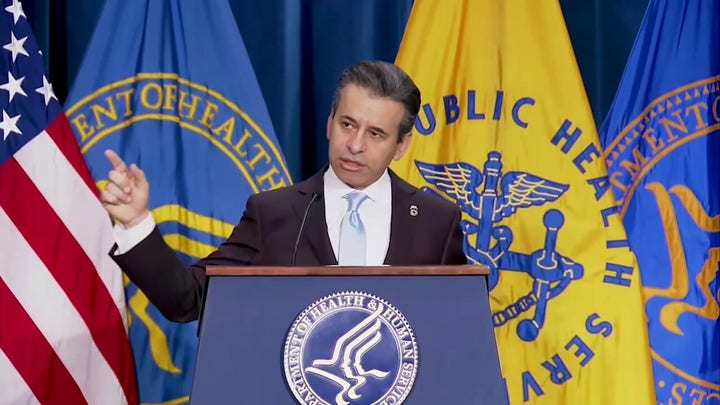The U.S. Food and Drug Administration (FDA) announced it is initiating the removal of ‘black box’ warning labels from hormone replacement therapy (HRT) products used to ease menopause symptoms, a move Commissioner Dr. Marty Makary said is backed by decades of research on the therapy’s benefits and clinical trials that do not support earlier fears linking it to higher breast cancer mortality.
Health and Human Services Secretary (HHS) Robert F. Kennedy Jr. said at a press conference alongside Makary on Monday that the so-called ‘black box’ labels, the strongest warnings for prescription drugs the agency can require, were designed to ‘frighten women and to silence doctors.’
‘It warned of diseases and dangers that the data simply did not support. Bureaucrats at the FDA reacted out of fear, not gold standard science. And instead of correcting the record, the medical establishment doubled down in groupthink,’ said Kennedy. ‘The consequences have been devastating.’
Makary added that a 2002 study known as the Women’s Health Initiative — which fueled concerns about hormone therapy and breast cancer — was ‘misrepresented and created a fear machine.’
He wrote in a Monday op-ed in The Wall Street Journal hours before the official announcement that HRT, which ‘consists of estrogen and progesterone (or estrogen alone for women who have had a hysterectomy),’ is a ‘breakthrough for many women.’
‘It alleviates the short-term symptoms of menopause, including hot flashes, night sweats, mood swings and weight gain, and when started within 10 years of menopause it has underappreciated long-term health benefits that even doctors may not be familiar with.’
The ‘black box’ warnings, which were first added in 2003, were based on misinterpreted data and discouraged millions of women from using HRT, according to the FDA commissioner.
Makary highlighted a 1991 UC San Diego review that found HRT may reduce fatal coronary events by about 50% and a 1996 study from the University of Southern California that found women using estrogen replacement therapy had a 35% lower risk of Alzheimer’s disease compared with nonusers.
Kelly Casperson, a board-certified urologist, said at the HHS event that the FDA’s step to remove the ‘black box’ warning label would help ‘correct decades of misleading guidance.’
‘The FDA’s decision to remove the box warning is not just regulatory,’ she said. ‘It’s revolutionary.’

